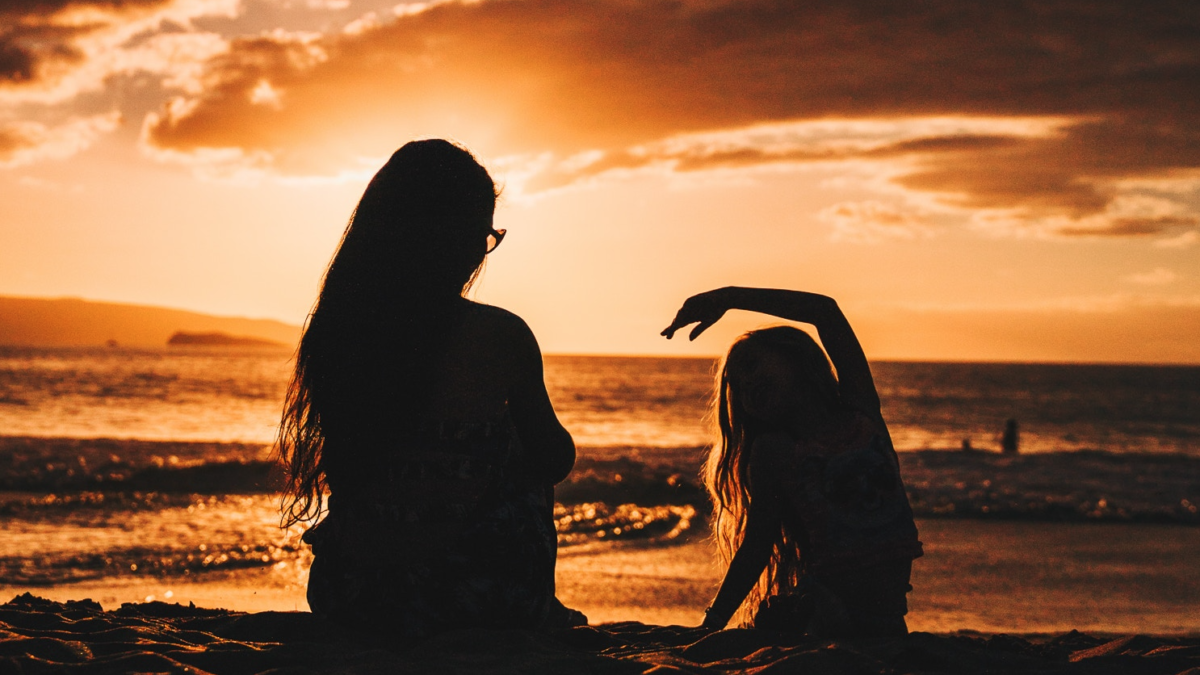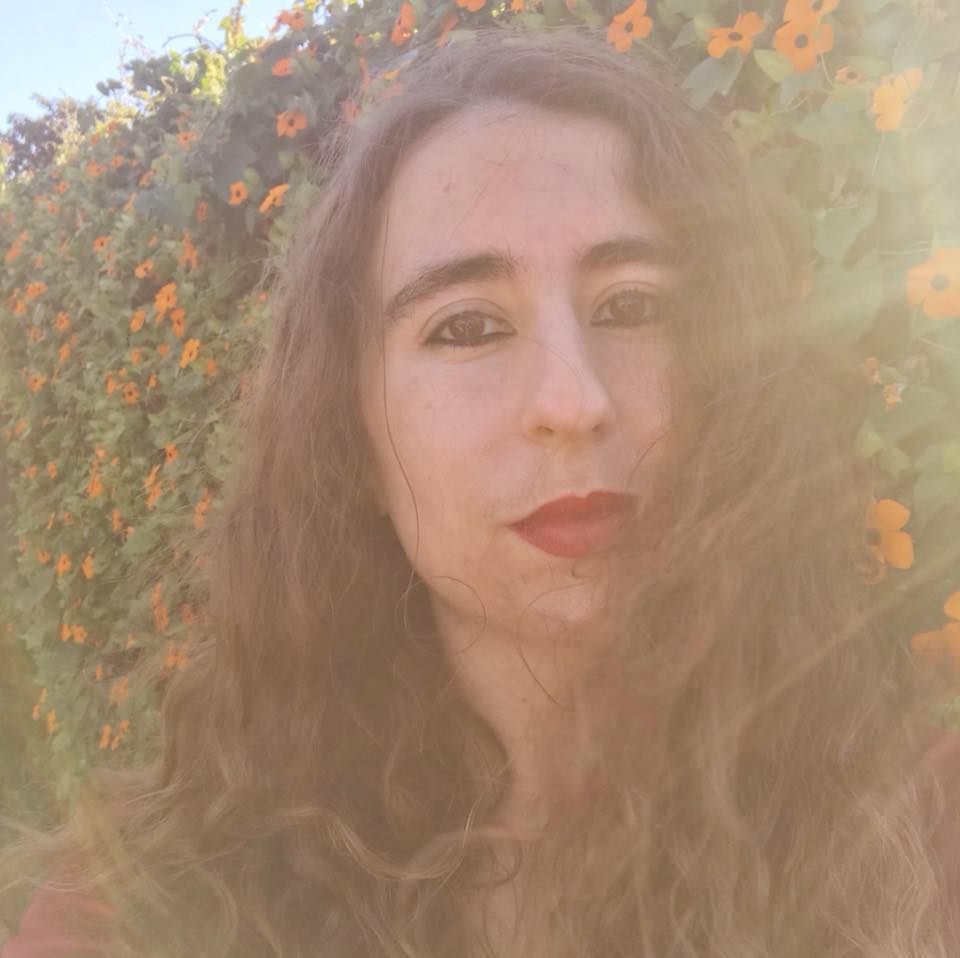“Mom, can we talk?” I asked nervously. I was back at home on summer break after my second year of college, and I knew it was time to come out to her.
“Sure, sweetie,” my mom said. “What is it?”
“Can we go on a walk?”
We walked up to the tiny park at the top of the hill by my house, where I had spent so many childhood years. This is where I had practiced shooting hoops on the tiny basketball court. Where my twin sister and I celebrated our fifth birthday party. Where I would sing “Lucy in the Sky With Diamonds” on the playground swing, thinking if I pumped my legs hard enough, I could eventually touch the sky.
We finally found a place to sit down, and my heart felt like it might come out of my chest. My mom was the first person I planned to tell. Once I said it out loud, it meant the thing I had been trying so hard to persistently deny about myself over the last few years was actually going to be real.
“What did you want to tell me?” my mom asked.
I paused and took a deep breath.
“Um…I think I’m bi?” I said nervously.
I posed it as more of a question. At that point, I knew I wasn’t straight, but I was still unclear on exactly where I landed or how I wanted to identify my sexuality.
I tentatively turned toward her to gauge her reaction. Almost immediately, she replied, “Oh, I’m bi too!”
RELATED: 10 TRUTHS I’VE LEARNED AS A MARRIED QUEER FEMME MOTHER
My jaw dropped. “What?” I almost shrieked, my smile widening and my face brimming with excitement. It was a surreal moment. I was so focused on my own coming out that I never considered it as a possibility that my mom might come out to me too. My mom was still married to my dad at the time, so I just assumed she was straight. She was also a fairly private person and the few times she talked about her love life before she met my dad, she had only ever mentioned male partners.
As soon as I took this information in, the immediate effects were palpable. I felt lighter, less ashamed of the person I feared for so long I might be. The isolation I had felt all of those years and the memories of all the nights I silently cried myself to sleep, hoping I would somehow magically wake up straight, quieted, at least for that moment. I finally didn’t feel alone anymore. Here was someone else who understood exactly who I was and what it was like to be queer, and she was one of the people I most loved and looked up to in the world. By coming out to me, she affirmed that it was completely normal to not be straight, and this shared revelation was both healing and transformative.
It was an incredible feeling to have this moment of connection, bridged by our common experience of queerness. It would be many more years of questioning and self-reflection until I settled on identifying as asexual and biromantic, but coming out to my mom that day started me on a path of discovering and accepting the person I was always meant to be.
Recently, on a drive to see the Oakland Museum of California’s (OMCA) new exhibit, “Queer California: Untold Stories” (I know, we’re so on brand), I asked my mom why she had decided to come out to me in that moment.
She said, “I wanted to show you that it was OK to be who you are, that there’s nothing to be ashamed of.”
My mom has always marched to the beat of her own drum, and in ways both big and small, she’s confidently modeled nonconformity to me. From her quirky wardrobe choices to her kooky personality to her defiance of gender roles and beyond, my mom has shown me time and time again what it means to show up fully as yourself. And yet, when she came out to me, I was one of the few people who knew; she wasn’t out to most people yet.
While she told me in that same car drive to OMCA that she thought her queer trajectory would still have been fairly similar if I hadn’t come out to her, she expressed that it helped give her more confidence that the people in her life, especially her daughters, would accept her. We’ve also grown closer since our mutual coming out, as this common understanding of queerness has allowed us more candor, openness and vulnerability in our relationship. She didn’t just help me that day; I helped her in my own way too.
In the years after we came out to each other, my mom has since came out to her family and friends, moved out of the suburbs, found her own community of older queer women (she can be found frequenting local queer lady rock concerts and comedy shows—did I mention she’s way cooler than me?), and has also been in a long-term relationship with her current female partner for the past seven years.
RELATED: WHAT IT’S LIKE PLANNING A WEDDING AFTER YOUR MOM DIES
I have also found myself since my mom and I came out to each other, and have finally accepted my asexuality and started to build strong friendships with fellow asexual (or ace) folks who affirm me and make me feel at home in the LGBTQ+ community.
By being open about who we were, my mom and I were both able to show up for each other and light the way to become our truest, most authentic selves. In a time where it is still unsafe for so many queer people to come out, I don’t take this kind of mutual understanding and support for granted.
When I think about belonging, I think about something Brené Brown wrote in her book Braving the Wilderness: “True belonging doesn’t require you to change who you are; it requires you to be who you are.”
My mom and I showed that to each other on the day we both came out, and we continue to show that to each other every day.
I’m grateful she’s queer and here, right alongside me.
 Jennifer Lerner is a 31-year-old UC Berkeley graduate and writer who enjoys writing about gender, sexuality and disability. Her other interests include photography, baking and taking relaxing walks in nature. You can follow her on Twitter @JenniferLerner1 and on Instagram @jennlerner.
Jennifer Lerner is a 31-year-old UC Berkeley graduate and writer who enjoys writing about gender, sexuality and disability. Her other interests include photography, baking and taking relaxing walks in nature. You can follow her on Twitter @JenniferLerner1 and on Instagram @jennlerner.

































